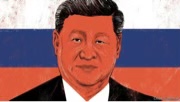- sonatinas
- Apr 15, 2003
-

Seattle Karate Vs. L.A. Karate
|
And 2, provides another fast and low cost way to settle international trade without going thru any bank or traditional SWIFT type centralized system.
for no 2 I did this a lot in my line of work. unless you have a very, very good relationship with the buyer lots of Chinese contracts(in my experience) require payment from bank to bank.
so like if you are in the USA selling a container of X to Chinese company, the contract will require the seller to submit the invoice and other customs /transport docs to their bank to settle the transaction and get the documents either by paying up front or with terms and then China bank pays us bank which then gets deposited in us company account. there are various ways doing this that are either easy from a seller perspective or cumbersome (letter or credit)
I would wonder how this would change how things are done via us banks though.
|
 #
?
Jul 10, 2023 00:29
#
?
Jul 10, 2023 00:29
|
|
- Adbot
-
ADBOT LOVES YOU
|

|
|
#
?
May 26, 2024 22:47
|
|
- crepeface
- Nov 5, 2004
-

r*p*f*c*
|
not simply a China/Asia question but I don't really understand when states talk about creating digital currency. it's already digital isn't it, like 90% of currency transactions are digital
quote:
China has proposed scaling up local currency settlement among member states of the Shanghai Cooperation Organization, expanding cooperation on sovereign digital currency, and promoting the establishment of a development bank within the organization.
And 2, provides another fast and low cost way to settle international trade without going thru any bank or traditional SWIFT type centralized system.
yeah it sounds like the focus is not so much on digitisation but on sovereign cooperation
|
 #
?
Jul 10, 2023 00:33
#
?
Jul 10, 2023 00:33
|
|
- Regarde Aduck
- Oct 19, 2012
-

c l o u d k i t t e n
-
Grimey Drawer
|
was waiting for the rabbit being fine reveal but oh well
|
 #
?
Jul 10, 2023 00:52
#
?
Jul 10, 2023 00:52
|
|
- euphronius
- Feb 18, 2009
-

|
what happened to the rabbit in the beginning of the video ?
|
 #
?
Jul 10, 2023 00:53
#
?
Jul 10, 2023 00:53
|
|
- stephenthinkpad
- Jan 2, 2020
-
|
for no 2 I did this a lot in my line of work. unless you have a very, very good relationship with the buyer lots of Chinese contracts(in my experience) require payment from bank to bank.
so like if you are in the USA selling a container of X to Chinese company, the contract will require the seller to submit the invoice and other customs /transport docs to their bank to settle the transaction and get the documents either by paying up front or with terms and then China bank pays us bank which then gets deposited in us company account. there are various ways doing this that are either easy from a seller perspective or cumbersome (letter or credit)
I would wonder how this would change how things are done via us banks though.
But you are in one of the western countries? So the priority to the Chinese seller is safety of the transaction not going around the monitoring.
When US sanctioned Iran, initially it gave a lot of trouble to big Chinese banks to even touch the Iranian transactions. Because it opens up the risk of US imposing secondary sanction to these major Chinese banks. So I think initially there was only one chinese bank specialized in the central asia business (Kunlun Bank), I don't know what the current arrangement is and I am pretty sure China doesn't want to talk about it even if the new system is working fine.
So this digital RMB is built from ground up to not touch the centralized bank to bank system.
And I think it has alot of potential oversea. Think about it, once China works out the bugs and kinks they can offer it as a whole package to other countries and use as their own version of alipay or visa/master alternative. OTOH, a random mid sized country like Indonesia can just use alipay but they much rather roll their own version of digital currency and retain much more sovereignty. It's like the difference between buying NATO/Russia weapon systems wholesale vs doing joined development projects and control the know how to production of advanced weapons within their own border.
|
 #
?
Jul 10, 2023 00:57
#
?
Jul 10, 2023 00:57
|
|
- indigi
- Jul 20, 2004
-

how can we not talk about family
when family's all that we got?
|
to me that isn't a digital currency as much as it is a new clearance protocol for existing currency reserves which is why I feel like I'm missing something
|
 #
?
Jul 10, 2023 01:01
#
?
Jul 10, 2023 01:01
|
|
- sonatinas
- Apr 15, 2003
-

Seattle Karate Vs. L.A. Karate
|
But you are in one of the western countries? So the priority to the Chinese seller is safety of the transaction not going around the monitoring.
yeah I’m in the USA and my perspective is from exports to China. if an alternative to SWIFT becomes really viable soon that would quite something. if US companies can still get paid and it’s easier I don’t think you’ll have a lot of people trying to be SWIFT purists unless their bank starts throwing a tantrum
|
 #
?
Jul 10, 2023 01:04
#
?
Jul 10, 2023 01:04
|
|
- stephenthinkpad
- Jan 2, 2020
-
|
to me that isn't a digital currency as much as it is a new clearance protocol for existing currency reserves which is why I feel like I'm missing something
Don't quote me but I think the digital RMB is designed to be usable without a connection online so its not like credit cards/alipay/wechat pay in that basic level.
So in theory you can use it in the middle of nowhere like in the poorest and most remote countries.
|
 #
?
Jul 10, 2023 01:13
#
?
Jul 10, 2023 01:13
|
|
- Doktor Avalanche
- Dec 30, 2008
-

|
Don't quote me but I think the digital RMB is designed to be usable without a connection online so its not like credit cards/alipay/wechat pay in that basic level.
So in theory you can use it in the middle of nowhere like in the poorest and most remote countries.
i don't see how that can be possible, or if it is it would be open to gross abuse
|
 #
?
Jul 10, 2023 01:25
#
?
Jul 10, 2023 01:25
|
|
- Throatwarbler
- Nov 17, 2008
-

by vyelkin
|
i don't see how that can be possible, or if it is it would be open to gross abuse
https://www.globaltimes.cn/page/202306/1293131.shtml
|
 #
?
Jul 10, 2023 02:03
#
?
Jul 10, 2023 02:03
|
|
- gradenko_2000
- Oct 5, 2010
-

HELL SERPENT
-
Lipstick Apathy
|
i don't see how that can be possible, or if it is it would be open to gross abuse
RMB dupe exploit haxxx
|
 #
?
Jul 10, 2023 02:08
#
?
Jul 10, 2023 02:08
|
|
- Doktor Avalanche
- Dec 30, 2008
-

|
i don't see what this article has to do with my post?
|
 #
?
Jul 10, 2023 02:10
#
?
Jul 10, 2023 02:10
|
|
- i say swears online
- Mar 4, 2005
-

|
I'd be really curious to see how this proposed digital currency system would work in comparison to things like the Cuban dual currency system, which I don't know enough about but haven't heard great things about in terms of its effects on the domestic economy
the covid tourism decline actually killed that off
|
 #
?
Jul 10, 2023 02:18
#
?
Jul 10, 2023 02:18
|
|
- Eminent DNS
- May 28, 2007
-

|
the covid tourism decline actually killed that off
The Cuban tourist peso, you mean?
drat, rip to a real one
No, wait, that's Brazil
|
 #
?
Jul 10, 2023 05:19
#
?
Jul 10, 2023 05:19
|
|
- Big Bad Idiot
- Jun 27, 2023
-

by vyelkin
|
does the book say "how to make cougars [old rich women] fall in love with you" ?
|
 #
?
Jul 10, 2023 05:53
#
?
Jul 10, 2023 05:53
|
|
- Big Bad Idiot
- Jun 27, 2023
-

by vyelkin
|
also who hasn't gone varmint hunting and eaten stewed rabbit with dry chilis. yes I dated a sichuanese person while in wyoming what does that have to do with it
|
 #
?
Jul 10, 2023 05:56
#
?
Jul 10, 2023 05:56
|
|
- Soapy_Bumslap
- Jun 19, 2013
-

We're gonna need a bigger chode
-
Grimey Drawer
|
what happened to the rabbit in the beginning of the video ?
It is every lagomorph's final duty to go into the wok, and become one with all the people
|
 #
?
Jul 10, 2023 06:02
#
?
Jul 10, 2023 06:02
|
|
- Centrist Committee
- Aug 6, 2019
-
|
But you are in one of the western countries? So the priority to the Chinese seller is safety of the transaction not going around the monitoring.
When US sanctioned Iran, initially it gave a lot of trouble to big Chinese banks to even touch the Iranian transactions. Because it opens up the risk of US imposing secondary sanction to these major Chinese banks. So I think initially there was only one chinese bank specialized in the central asia business (Kunlun Bank), I don't know what the current arrangement is and I am pretty sure China doesn't want to talk about it even if the new system is working fine.
So this digital RMB is built from ground up to not touch the centralized bank to bank system.
And I think it has alot of potential oversea. Think about it, once China works out the bugs and kinks they can offer it as a whole package to other countries and use as their own version of alipay or visa/master alternative. OTOH, a random mid sized country like Indonesia can just use alipay but they much rather roll their own version of digital currency and retain much more sovereignty. It's like the difference between buying NATO/Russia weapon systems wholesale vs doing joined development projects and control the know how to production of advanced weapons within their own border.
the commies funded a startup to disrupt the dollar market
|
 #
?
Jul 10, 2023 07:24
#
?
Jul 10, 2023 07:24
|
|
- Danann
- Aug 4, 2013
-

|
Emergency Measures - A translated article from 2019 about the development and achievements of PRC computer industry.
Teaser posted:
“Emergency Measures”: The Foundation of China’s Computer Industry
The first steps and subsequent development of China’s domestic computer industry benefited greatly from the close attention of Chairman Mao and Premier Zhou. After the founding of New China, this ancient country, which was once impoverished and weak, ushered in a scientific and technological Renaissance with the Central Committee of the Communist Party of China attaching great importance to the development of science and technology. In January 1956, the Central Committee of the Communist Party of China (CPC) held a conference on intellectuals, and Premier Zhou presented a report which issued a call to the Party and the country to “march towards modern science.” In his speech on the last day of the conference, Chairman Mao called on the Party to strive to grasp scientific and technological knowledge, and to struggle to quickly catch up with the world’s most advanced levels of science, thus giving encouragement to the country’s workers in science and technology. With the strong support of the state, the relevant parties started the crucial work of developing a domestic computer industry.
After the founding of New China, the electronics industry was managed by the Communications Department of the Military Commission. On 29 October 1951, Zhou Enlai approved the “Report on the Construction of Radio Parts Factory and Electronic Tube Factory” by Wang Zhuan, Director of the Communications Department of the Military Commission and Director of the Telecommunications Industry Administration, expressing his agreement and giving specific recommendations on design, layout, trade negotiations, and other issues. In January 1953, the first Chinese computer research group was established by Hua Luogeng at the Institute of Mathematics of the Chinese Academy of Sciences, with the task of “studying the principles and design of electronic computers and experimenting with their main components.” In 1953, the Bureau of Telecommunications Industry finally became the Tenth Bureau of the Second Ministry of Machinery Industry after Premier Zhou’s approval, and a number of electronic factories in the Jiuxianqiao area of Beijing, such as 738, 718 and 774, began the production of computers. China’s computer industry officially had started.
On 10 February 1956, a delegation of Soviet scientists came to China for a short period of time to give lectures and help draw up scientific plans. When Premier Zhou learned about the power of computer-based word processing and parsing functions, as well as their active use in foreign militaries, he immediately expressed a strong sense of urgency, as China’s capabilities were still meager. He believed that China had to make a determined effort to catch up, and that computers had to be linked to the military and applied to industrial production as soon as possible. Luo Peilin [8] and Ling Ruiji [9], who had participated in the early development of China’s computer industry, recalled that, when the Premier heard that we did not have the computing capabilities at present, he forcefully stated: “Solely relying on the power of one department we cannot produce a computer, but under the leadership of the Party Central Committee and the State Council, centralizing the entire country’s strength, could it not be done?”
Premier Zhou felt that the development of computer applications in the country’s industrial production and national defense was a very necessary and urgent task, and therefore formulated and proposed an “emergency measure.” The reason why it was defined as an emergency measure is because at that time the visiting Soviet experts helped to develop a significant amount of scientific planning, and it was necessary to delineate the key projects that were “emergency measures” in order to prioritize the necessary work. On 20 May 1956, the Scientific Planning Commission officially submitted “Emergency Measures” to the State Council for consideration, and on 5 July 1956, the Commission officially released the text of the “Four Emergency Measures.” The “Emergency measures” included computers, semiconductors, radio electronics, and automation; four areas where China’s development was still very weak, but which held major strategic value.
On 1 January 1957, following Zhou Enlai’s request, the Chinese Academy of Sciences, the General Staff Department of the People’s Liberation Army, and the Second Ministry of Machine Building, signed an “Agreement on Cooperation in the Development of Chinese Computing Technology” as the implementing units of the “Emergency Measures.” The three parties agreed to establish a research base for the development of computing technology by assembling talents in an unconventional way. The organizational principle was “centralization first, then decentralization.” First, experts from the Second Ministry of Machine Building and the army were assembled at the Institute of Computing of the Academy of Sciences to build a general-purpose electronic computer, and then the experts returned to their original units to establish working groups to develop computers.
In 1957, China submitted to the Soviet Union the “List of Projects for Cooperation between the Chinese and Soviet Academies of Sciences,” the first item of which was computing technology. The “Scientific Research on Computing Technology and the Establishment of an Industrial Base” became a major scientific research project in Soviet-Chinese cooperation. This technology transfer covered a full technology ecosystem, including theory, technology, devices and processes, from research and development to production and application, the organizational systems, institutions, and personnel training in all aspects — not just the imitation of a few machines. According to the “emergency measures,” the Chinese Academy of Sciences sent a 20-member internship team to the Soviet Union to study for 18 months. After returning to China, they became the core of computer professionals and discipline leaders domestically, and three key academicians emerged from this group.
Meanwhile, the Institute of Computing Technology of the Chinese Academy of Sciences and Tsinghua University, Peking University, and the University of Science and Technology of China conducted four training courses in computer science and computational mathematics within six years, training nearly 800 students who became the backbone of the computing industry. In 1958, approved by the Party Central Committee, 287 senior college students who were originally studying automotives, electrical machinery, and management were transferred to Tsinghua University to train in automated control and computers, and other colleges and universities also transferred several students to computer majors. Wang Xuan of the Department of Mathematics at Peking University was one of the aforementioned students. He answered the nation’s call and chose the direction of computational mathematics, and later became a famous mathematician. He invented Chinese character laser phototypesetting technology, became a member of the Chinese Academy of Sciences, as well as a member of the Chinese Academy of Engineering. By 1966, there were over 6,000 students enrolled in computer science programs across all domestic colleges and universities.
In 1959, Sino-Soviet relations deteriorated rapidly, and Khrushchev withdrew all Soviet experts from China, leaving China with very little Soviet technical support. [10] At that time, the difficulties that the impoverished and technological backwards New China faced were more than a hundred times larger than what Huawei faces today from U.S. sanctions.
Under the technological blockade of the U.S. and the Soviet Union, China could only follow the development route of domestic independent design and production. It was just as Chairman Mao said: “Blockade us. Blockade us for eight or ten years and China’s problems will be solved.”
The “emergency measures” gave full play to the advantages of the national system and the synergy of large groups. Computer science in the New China rapidly developed from a small research group to a professional institute, and Zhongguancun in Beijing became the “cradle of computers.” The “emergency measures” built the electronic computer industry into a new industry covering scientific research, education, industry and national defense in China, and computing technology and computational mathematics were upgraded from mere scientific disciplines to critical national tools.
|
 #
?
Jul 10, 2023 07:50
#
?
Jul 10, 2023 07:50
|
|
- Tankbuster
- Oct 1, 2021
-

|
lol are the Khalistan guys really active again
kejriwal did his thing and gave them another way to get back into politics. Lmao, indian middle class liberals are a [insert slur here]
|
 #
?
Jul 10, 2023 09:18
#
?
Jul 10, 2023 09:18
|
|
- gradenko_2000
- Oct 5, 2010
-

HELL SERPENT
-
Lipstick Apathy
|
Still blaming ‘bobotantes’ for the spread of fake news?
quote:Note: "bobotante" is a portmanteau of the word "bobo", or stupid, and "botante", or voter. It's a pejorative for "low-information voter"
quote:It must be so convenient to just blame the “gullible masses” for the spread of fake news.
But a new report on disinformation in the Philippines challenges this “elitist” framing of the problem, noting that at the core of disinformation networks is a brain trust of propaganda gurus, troll farm operators and glib “middle-class creatives” enlisted in the service of political interests for a handsome fee.
The fight against fake news, the report said, should therefore include placing the “disinformation economy” under scrutiny and revisiting the ethical standards that advertising and public relations practitioners should be upholding, especially those who are funding celebrity “influencers” for disinformation campaigns.
“In reality, it’s an open secret that many advertising agencies, PR consultants and influencers earn big bucks during political campaigns,” said Jonathan Corpus Ong, one of the six coauthors of the study titled “The Evolution of Disinformation in Three Electoral Cycles.”
“We need researcher-journalist coalitions that can trace the money trail of the country’s disinformation economy. That can be the starting point to create pathways to accountability,” said Ong, an associate professor of communication at University of Massachusetts Amherst and at Harvard University.
Released on July 4, the report was funded by the international non-profit Internews and retraced the rise of tech-aided disinformation as a political tool in the country since 2016, mainly during the campaign period leading to the election of Rodrigo Duterte as President.
Internews produced the report in the hope of helping like-minded organizations or advocates in their own counter-disinformation efforts.
“For disinformation studies to actually have an impact on the problems it claims to want to address, we need to complement verification and [media] literacy efforts with diverse accountability pathways that can target local industries of disinformation production,” the report said.
Fact-checkers and researchers in the digital space should be more empowered to call out unfair and unethical practices, it added.
Blaming the “masa” [masses, hoi polloi] or “bobotantes” for the spread of lies and black propaganda during an election season just perpetuates a “very old, presocial media myth,” Ong said in an Inquirer interview, summing up one of the points raised in the report.
“What if we shift the setting? Instead of spotlighting the masa and their beliefs, we focus on the middle-class and their voting patterns,” he added. “What if we tell stories about middle-class creatives crafting disinformation campaigns for a fee? What if our video explainers focus on the corruption and complicity among [our] political and economic elites?”
One way to hold disinformation actors accountable is through legislation that can help expose fake news or troll operations, Ong said.
Another is to secure the commitment of advertising and public relations professionals to adhere to their own code of ethics when handling political clients, he added.
At present, the report said, there are still “clear gaps” for self-regulatory mechanisms within the advertising and PR industries where disinformation operations “continue to hide in plain sight.”
Politically driven disinformation content is largely tied to “unethical and unfair campaigning practices like overspending and skirting regulatory loopholes.”
“Civil society, journalists, and academics need to lobby policymakers to introduce new mechanisms for data collection and monitoring of electoral campaign content and expenditure,” it said. “We need a more robust transparency and accountability framework for election monitoring… while introducing punitive sanctions for abusers.”
The report also encouraged the promotion of antidisinformation “champions” within the ad and PR industries “to advance organizational reforms from within.”
I don't particularly care for the "anti-disinformation", "fact-checking" angle of the article, but I do bring it up as far as continually blaming the working class for "voting the wrong way" is one of the most pervasively repulsive beliefs of the [Filipino] liberal, when in reality the problem lies with them for being enlisted as mercenaries in this same fight that they bemoan so much.
|
 #
?
Jul 10, 2023 10:58
#
?
Jul 10, 2023 10:58
|
|
- stephenthinkpad
- Jan 2, 2020
-
|
Isn't that just "money gets votes" but spending money on new ways.
|
 #
?
Jul 10, 2023 11:30
#
?
Jul 10, 2023 11:30
|
|
- Oglethorpe
- Aug 8, 2005
-

|
the last people who know COBOL and mainframes are literally dying
i feel like i could learn cobol because i'm a poo poo coder
|
 #
?
Jul 10, 2023 11:57
#
?
Jul 10, 2023 11:57
|
|
- Truga
- May 4, 2014
-

-
Lipstick Apathy
|
it's really not though, the lucrative contracts are with the dying with the people who had them
just like in any other branch, race to the ground is just fine and healthy in IT, and after every bubble the floor gets a good bit lower
|
 #
?
Jul 10, 2023 12:17
#
?
Jul 10, 2023 12:17
|
|
- gradenko_2000
- Oct 5, 2010
-

HELL SERPENT
-
Lipstick Apathy
|
yeah I think "learn COBOL to replace the olds that are about to die out" is not a sure thing because the company might not hire you at the salary they were giving to the old guy
|
 #
?
Jul 10, 2023 12:23
#
?
Jul 10, 2023 12:23
|
|
- indigi
- Jul 20, 2004
-

how can we not talk about family
when family's all that we got?
|
can I get digital rmb
|
 #
?
Jul 10, 2023 16:38
#
?
Jul 10, 2023 16:38
|
|
- ikanreed
- Sep 25, 2009
-

I honestly I have no idea who cannibal[SIC] is and I do not know why I should know.
syq dude, just syq!
|
Foxconn has apparently pulled out of the india iphone factory initiative
Lol owned
|
 #
?
Jul 10, 2023 17:56
#
?
Jul 10, 2023 17:56
|
|
- Adbot
-
ADBOT LOVES YOU
|

|
|
#
?
May 26, 2024 22:47
|
|
- Centrist Committee
- Aug 6, 2019
-
|
Foxconn has apparently pulled out of the india iphone factory initiative
china is going to reunify india and pakistan
|
 #
?
Jul 10, 2023 18:06
#
?
Jul 10, 2023 18:06
|
|




































